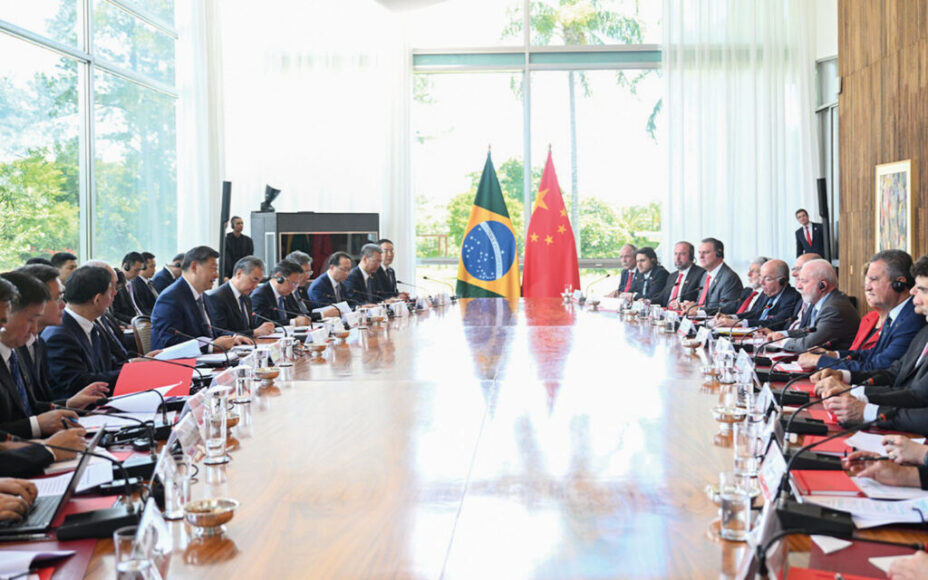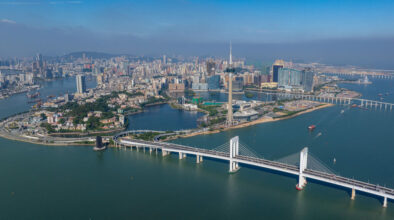China and Brazil marked a significant joint milestone in 2024: 50 years of diplomatic relations. President Xi Jinping’s state visit to the Portuguese-speaking country’s capital last November celebrated this half-century of cooperation while setting the stage for future collaboration.
Following the G20 Leaders’ Summit in Rio de Janeiro, Xi and top Brazilian officials – including President Luiz Inácio Lula da Silva – signed 37 cooperation agreements spanning 16 different sectors, from agriculture to technological innovation, energy and infrastructure. These agreements signalled the strength of commitment from both sides to continue deepening their partnership.
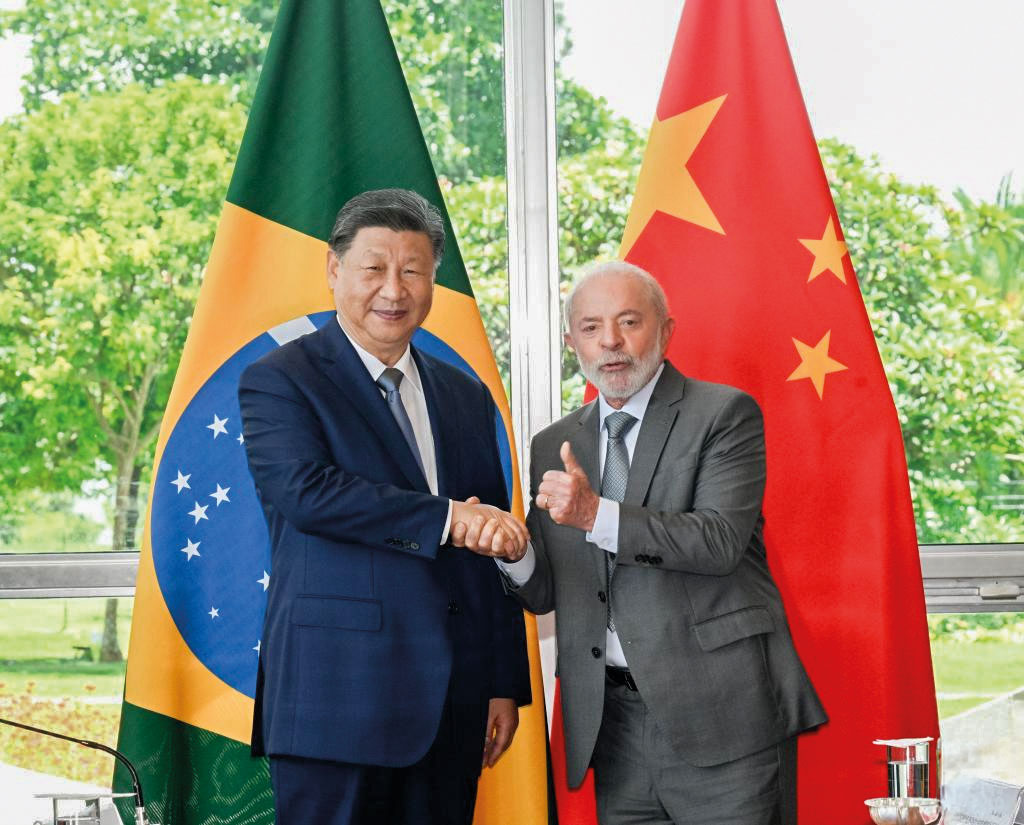
“The China-Brazil relationship is at its best in history, which has not only improved the well-being of the people of the two countries, but also defended the common interests of developing countries, enhanced the strength and voice of the Global South, and made outstanding contributions to world peace and stability,” Xi told media after a meeting held with his Brazilian counterpart, at the Alvorada Palace.
A strategic relationship
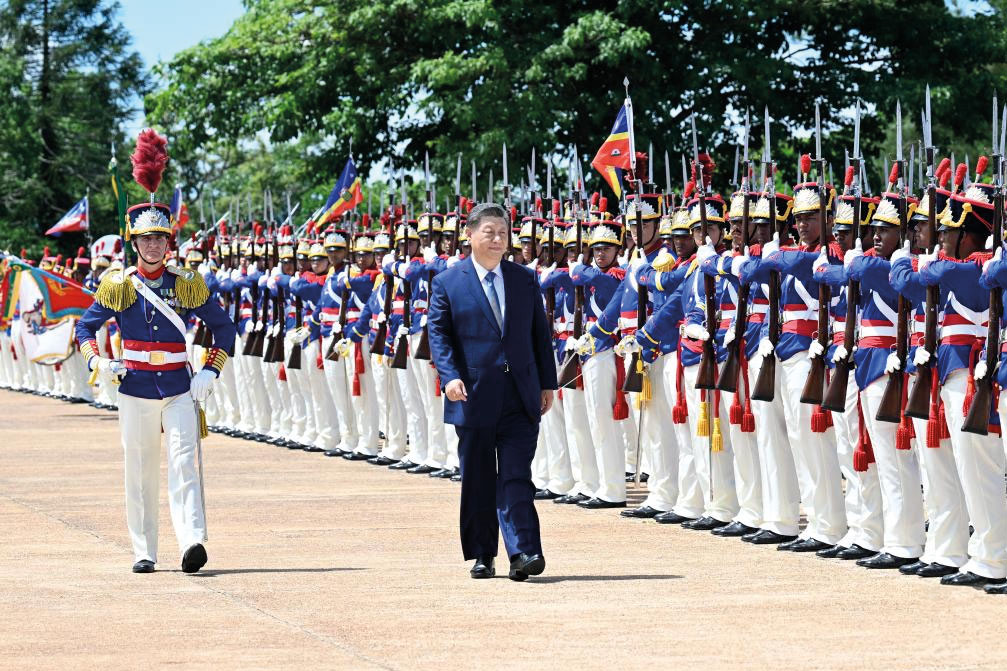
João Simões, assistant professor at the City University of Macau’s Institute for Research on Portuguese-Speaking Countries, described Xi’s visit as “symbolically significant” given political shifts and global tensions currently playing out around the world. During Xi’s time in Brazil, he and Lula announced they were elevating their respective countries’ ties to a new echelon: the pair now officially form what the Central Government calls a “community with a shared future for a more just world and a more sustainable planet”. Simões, an expert on Sino-Lusophone relations, tells Macao magazine that China reserves this designation for “partners of strategic importance”.
Brazil is seeking to “diversify exports, attract more investment and increase bilateral cooperation with China,” says Simões. More generally, the country hopes to “reposition itself as a relevant player in a polarised world” through diversifying its commercial and political partnerships.
Indeed, Xi’s visit led to a cooperation plan aimed at aligning China’s Belt and Road Initiative with national projects already underway in Brazil. The Brazilian projects include New Industry Brazil, which aims to revitalise the country’s industrial sector; the Growth Acceleration Program, with a focus on infrastructure; and the Ecological Transformation Plan, a comprehensive scheme that involves developing sustainable finance practices and a circular economy.
Simões views the two countries’ synergies under this new cooperation plan as “fundamental” to their partnership’s health.
From internationalising the yuan to improving rural internet
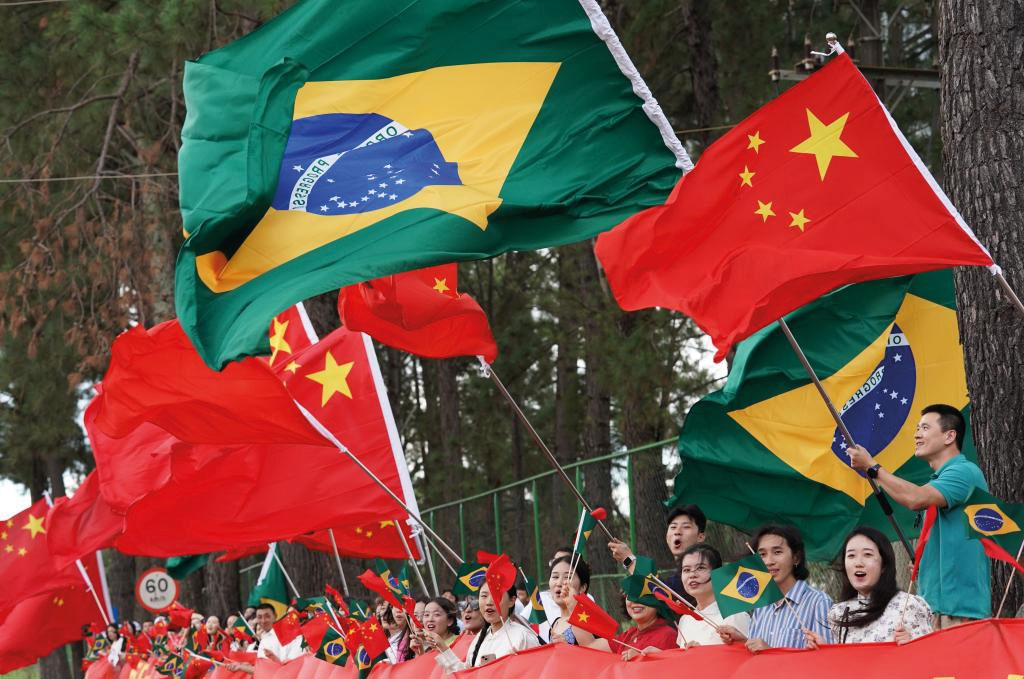
One groundbreaking development resulting from Xi’s time in Brazil involved the National Bank for Economic and Social Development (BNDES)’s first foreign currency commercial loan. In a move reflecting the nations’ shared goal of reducing reliance on the US dollar, China Development Bank signed a three-year loan deal with the Brazilian bank worth 5 billion yuan (US$690 million).
Lula, in particular, has been a strong proponent of creating alternatives to the dollar for transactions between BRICS members (BRICS being the intergovernmental organisation founded by Brazil, Russia, India and China with an emphasis on non-interference and mutual benefit).
Another key part of Xi’s visit focused on Brazil’s initiative to better connect the countries of its continent through infrastructure. Xi attended the Chinese-funded Chancay megaport’s inauguration ceremony while in Peru for the annual meeting of the Asia-Pacific Economic Cooperation Forum (APEC), which took place just prior to the G20 Summit in Brazil.
In the technological realm, new agreements signed between China and Brazil span collaborations in the photovoltaic industry, developing nuclear technology for peaceful purposes, artificial intelligence and digital economy initiatives. One notable partnership involves SpaceSail, the Chinese alternative to Elon Musk’s Starlink, which is set to provide internet access to remote areas in Brazil. Several of these initiatives will be geared towards modernising Brazil’s agricultural sector, an area critical to bilateral trade.
During Xi’s visit, Lula stated that the next phase of the countries’ partnership would focus on sustainable transitions and technological development. “We are determined to build on our cooperation for the next 50 years in areas such as sustainable infrastructure, energy transition, artificial intelligence, digital economy, health and aerospace,” he said.
Half a century of Sino-Brazilian relations
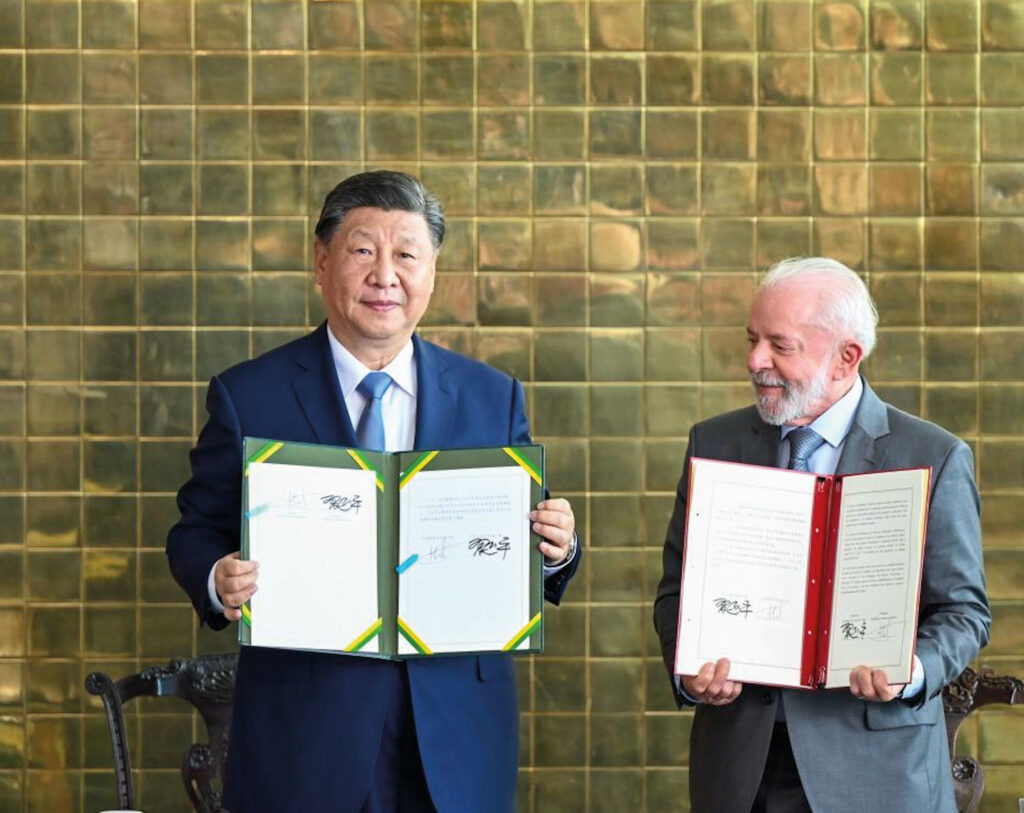
China and Brazil first established full diplomatic relations in August 1974. The nations’ relationship deepened in the 20th century, following China’s economic reforms. These spurred rapid industrialisation within the country, along with a focus on global trade and integration. In November 1993, Brazil became China’s first official strategic partner – a major milestone in China’s international relations.
Trade between the two nations has since expanded exponentially. In 2003, bilateral trade stood at less than US$7 billion; by 2023, it had reached US$157.5 billion; and the first 10 months of 2024 saw trade increase by nearly 10 percent year-on-year. China became Brazil’s largest trading partner in 2009 – the same year BRICS was founded. It’s maintained that position ever since. Brazil, meanwhile, is China’s ninth-biggest trade partner.
Agricultural products have been a cornerstone of the countries’ relationship, and Brazil is China’s only trade partner with two dedicated agricultural diplomats in Beijing. Soybeans, corn, sugar, beef, poultry and pork dominate Brazilian exports to China; the South American giant has been China’s biggest food supplier since 2017, according to a speech made by Lula while Xi was in his country. Four new protocols were signed between Brazil’s Ministry of Agriculture and Livestock and China’s General Administration of Customs during the visit, paving the way for even more Brazilian food products to enter the Chinese market – including fresh grapes and sesame seeds.
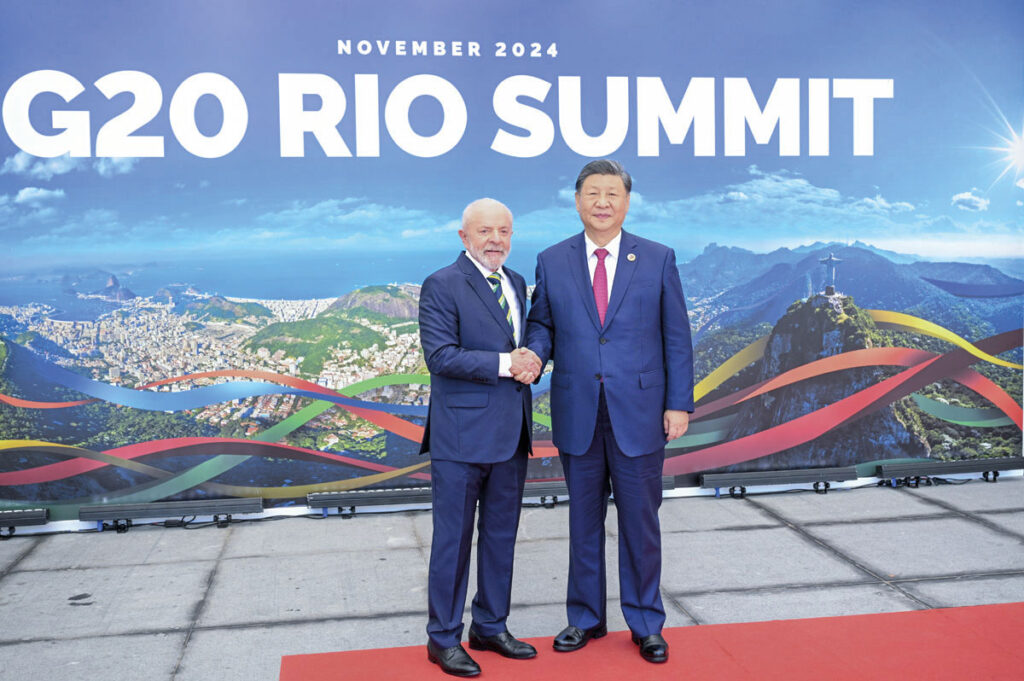
According to Simões, Brazil aims to increase the amount of value-added food products it exports to China, in addition to boosting the outflow of traditional agricultural products.
In the opposite direction, Brazil appears to be counting on China to help jump-start its high-tech industry. The country imported US$4.77 billion worth of semiconductor devices in 2022, with China supplying the vast majority worth of them. In 2023, the countries signed an agreement pledging to “explore mechanisms to promote bilateral cooperation in scientific and technological research and industrial innovation.”
As Simões puts it, the two countries “share a vision for a transformative partnership” that also encompasses technological innovations, education and cooperation on the global stage.
Leading the global south
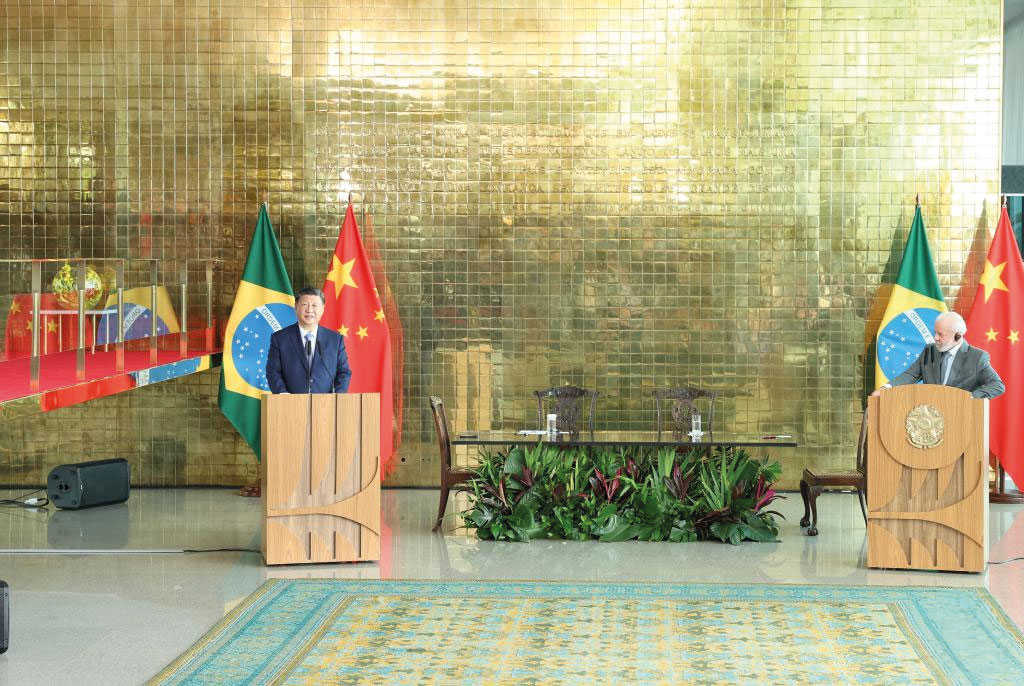
In November, Xi and Lula reinforced their shared commitment to promoting a fairer, more equitable international order – particularly where the Global South is concerned. This geopolitical term refers mainly to countries in Africa, Asia, South America, the Caribbean and Oceania with shared socioeconomic characteristics.
“In a world plagued by armed conflicts and geopolitical tensions, China and Brazil prioritise peace, diplomacy, and dialogue,” Lula said in a speech during Xi’s visit. The Chinese leader spoke of the importance of multilateralism, highlighting both China and Brazil’s contributions combating climate change and tackling poverty through forums like the United Nations, G20 and BRICS.
Cultural exchange also forms an integral part of the Brazil-China relationship. Following the success of their 50th anniversary festivities, the two countries announced plans for a Brazil-China Cultural Year in 2026. This initiative aims to deepen mutual understanding and strengthen people-to-people connections – something Simões believes is “undoubtedly one of the most significant” facets of international relations.
Simões sees Xi’s trip to Brazil as more than a celebration of the two countries’ long-standing relationship. “The visit symbolises … the search for a new balance in international relations, in the direction of a more just and equitable multipolar global governance,” he says.
